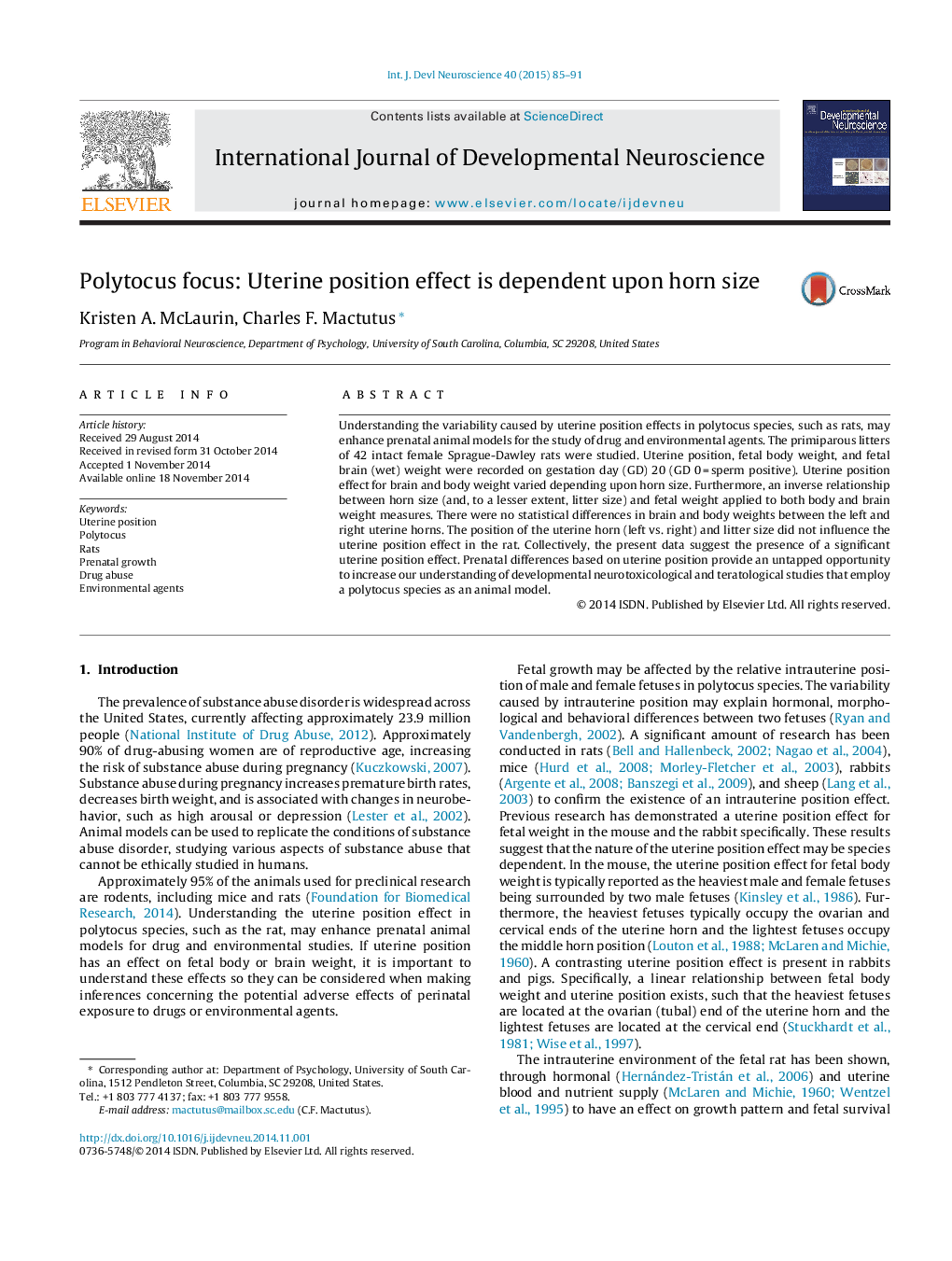| Article ID | Journal | Published Year | Pages | File Type |
|---|---|---|---|---|
| 2785865 | International Journal of Developmental Neuroscience | 2015 | 7 Pages |
•Intrauterine position within polytocus species may affect fetal growth.•Uterine position effect for brain and body weight was dependent upon horn size.•An inverse relationship exists between horn size and fetal brain and body weight.
Understanding the variability caused by uterine position effects in polytocus species, such as rats, may enhance prenatal animal models for the study of drug and environmental agents. The primiparous litters of 42 intact female Sprague-Dawley rats were studied. Uterine position, fetal body weight, and fetal brain (wet) weight were recorded on gestation day (GD) 20 (GD 0 = sperm positive). Uterine position effect for brain and body weight varied depending upon horn size. Furthermore, an inverse relationship between horn size (and, to a lesser extent, litter size) and fetal weight applied to both body and brain weight measures. There were no statistical differences in brain and body weights between the left and right uterine horns. The position of the uterine horn (left vs. right) and litter size did not influence the uterine position effect in the rat. Collectively, the present data suggest the presence of a significant uterine position effect. Prenatal differences based on uterine position provide an untapped opportunity to increase our understanding of developmental neurotoxicological and teratological studies that employ a polytocus species as an animal model.
